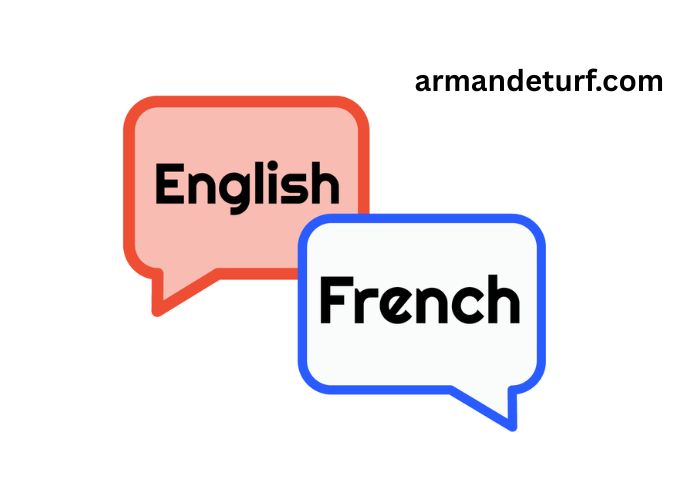English to French
Translating from English to French is more than just converting words—it’s about connecting cultures and expressing meaning clearly. Whether you’re learning for travel or work, the process requires precision and practice.
The demand for accurate English to French translation has never been higher, with students, professionals, and travelers relying on it for smooth communication in various real-life situations.
Why Is English To French Translation So Important Today?
In today’s global world, English to French translation plays a vital role in connecting people from English-speaking countries to the French-speaking world. Whether it’s for diplomacy, education, or global business, clear communication between the two languages is crucial. French is spoken in over 29 countries, and English is the most widely used international language, so mastering the English to French transition helps build cross-cultural understanding.
From websites to official documents, the need for high-quality English to French translation services has grown rapidly. Brands localize their marketing, students submit translated academic papers, and tourists rely on accurate phrases to travel confidently. This importance shows why everyone—from casual learners to professional translators—should understand the basics and nuances of translating English to French effectively and respectfully.
What Are The Biggest Challenges In English To French Translation?
While English to French translation might sound straightforward, it’s actually full of hidden challenges. English and French have different sentence structures, genders, verb conjugations, and idiomatic expressions. What works in English may not make sense in French, and word-for-word translation often leads to confusion or grammatical errors. Understanding these structural differences is key to becoming fluent in English to French communication.
Another major challenge is tone and context. For example, English might use a direct sentence, while French prefers a more polite or formal tone depending on the setting. Translators and learners must pay attention not only to grammar, but also to cultural cues. A small mistake during English to French translation—like misusing a verb tense or addressing someone informally—can lead to miscommunication. This makes mastering the transition an art as much as a science.
How Can You Learn English To French Translation Effectively?
The most effective way to master English to French translation is to practice regularly and immerse yourself in both languages. Start by learning basic grammar rules, such as noun gender, article usage, and verb conjugations in French. Then compare simple English sentences to their French equivalents and note the differences. Repetition and context-building are your best tools for grasping these patterns over time.
Digital tools can also help. Online translators, mobile apps, and interactive flashcards are great for beginners. But for serious learners, reading French books, watching French movies, and practicing conversation with native speakers will build fluency faster.
Studying side-by-side English to French translated texts can help you understand nuances and idiomatic phrases. The more you expose yourself to real usage, the more natural your translations become.
Which Tools Are Best For English To French Translation?
Today’s technology offers a variety of tools to make English to French translation faster and easier. Google Translate, DeepL, and Microsoft Translator are among the most used platforms. These tools are good for quick translations of short texts, but they’re not always accurate for complex sentences. They often miss context, cultural tone, and formal structure—which are critical in English to French communication.
Professional translation software like SDL Trados or memoQ offers advanced features for those who work in the field, allowing storage of terminology and automated suggestions. For casual learners, browser extensions and language learning apps like Duolingo or Babbel also support vocabulary and grammar learning. However, remember that no tool is perfect. Even with technology, understanding grammar and culture remains key to mastering English to French translation in any situation.
What Are Common Mistakes To Avoid In English To French Translation?
One of the most common mistakes in English to French translation is translating word for word without understanding context. This often results in awkward or incorrect phrases. For instance, translating “I’m cold” directly to “Je suis froid” is incorrect, as the French version should be “J’ai froid.” These types of errors can confuse listeners or readers and reduce your communication clarity.
Another mistake is ignoring gendered nouns or using the wrong tense. French grammar relies heavily on masculine and feminine forms, and mismatched adjectives or articles make your sentence grammatically wrong.
Also, improper use of verb conjugations and incorrect placement of pronouns are frequent beginner issues in English to French translation. To avoid these mistakes, learners should study with reliable resources and practice translating sentences out loud to build a natural rhythm.
Can English To French Translation Help With Career Growth?
Absolutely, English to French translation can open up many career opportunities in global industries like tourism, international business, diplomacy, and media. Bilingual employees are always in demand because they can communicate with a wider audience and support international collaboration. In many sectors, being able to switch from English to French gives you a competitive edge, especially in multinational corporations or European organizations.
Besides corporate roles, translation careers themselves are growing. Many companies hire freelance or in-house translators to convert documents, websites, or customer service messages from English to French.
Educational institutions and government bodies also need certified translators. This makes bilingual skills not just a personal asset but a valuable professional tool that can increase your income, reputation, and global reach.
Conclusion
The journey from English to French mastery is both rewarding and practical in today’s connected world. Whether for communication, career, or cultural appreciation, learning this translation skill opens doors across continents.
It requires consistent practice, the right tools, and a deep respect for linguistic differences. With dedication, anyone can become confident in handling English to French translation and use it to unlock personal and professional success.



